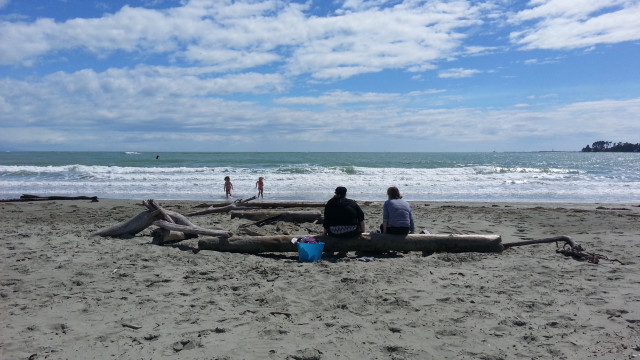About Counselling

What is counselling?
- Counselling offers an opportunity to talk to someone who will listen without criticism, and who will keep what you say confidential.
- Some people come to counselling because they need a friendly ear, or a different perspective on a problem (be it a relationship or a situation)
- Counselling offers more than talking to a friend - the time is all yours to talk about what is important to you - and you will not have to face the person the next day.
- Coming to counselling does not mean that you are crazy, but just that you have decided to explore new ways of dealing with what life is offering you, or that you know you would benefit from some support in dealing with things.
- Counselling offers a safe space to put into words the thoughts and feelings that are inside you - and in doing this gain some understanding and control over them.
- Counselling is a very different process for each person and we encourage you to discuss with the counsellor what you need from the time.
A counselling session may last up to an hour. Sometimes one session is all that is required, sometimes people come for several regular sessions and sometimes they may have long periods of time between sessions. This is something that is negotiated between you and the counsellor and depends on many factors including the types of issues that are discussed and the purpose of the counselling.
Why choose counselling?
The counselling relationship is unique, in that the talking is dedicated to you. You get to speak about, and decide what is best for you. Counsellors are skilled at dealing with emotional distress, trained to listen carefully and respectfully and to facilitate conversations that might include:
- Identifying concerns and understanding how they are affecting your life.
- Exploring possibilities or new ways to deal with the concerns.
- Recognise patterns and cycles and ways of intervening in these.
- Developing strategies and options for your relationships.
- Recognising and acting on goals, dreams, hopes and expectations that you hold for your life.
- Recognising or reconnecting with abilities and qualities and acting on these.
What can you expect from counselling?
You can expect to be:
- Listened to with care and respect.
- Responded to honestly and respectfully.
- Informed about confidentiality.
- Discussing issues that are relevant and preferable to you.
- Meeting with a counsellor who has qualifications and experience.
- Treated in ways that are respectful of and sensitive to cultural values, religious beliefs, gender issues and disabilities.
- Informed and consulted about referrals to other professionals if this would be of benefit to you.
- Free to ask questions about the counsellor's training, experience, ways of working, supervision, professional association including the code of ethics and complaints procedure.
- Supported to change counsellors if you wish.
- Stop counselling at any time for any reason.
- Informed about any groups or resources that may be of benefit to you.
- Free to refuse to answer questions or discuss any aspects of your life that do not feel relevant or appropriate.
- Supported through advocacy when this would be of benefit to you.
What factors can help make counselling beneficial?
The counselling relationship and experience is different for everyone and outcomes cannot be predicted, however most people find counselling beneficial. We have listed a few factors that can help make your counselling experience a good one.
- For many people counselling can be an unfamiliar or risky step to take. Expressing any concerns you may have to the counsellor can be helpful.
- Being prepared to think about the counselling conversations and act on ideas or decisions between counselling sessions.
- The relationship between you and the counsellor is an important factor. If you feel that the relationship with your counsellor is preventing you from speaking freely for any reason, let us know and we will support you to change counsellors.
Sometimes our beliefs or expectations of ourselves or counselling result in a delay in seeking help until situations become serious. Whilst no issue is too big or small, many people tell us that they wish they'd come to counselling sooner and saved themselves avoidable distress.